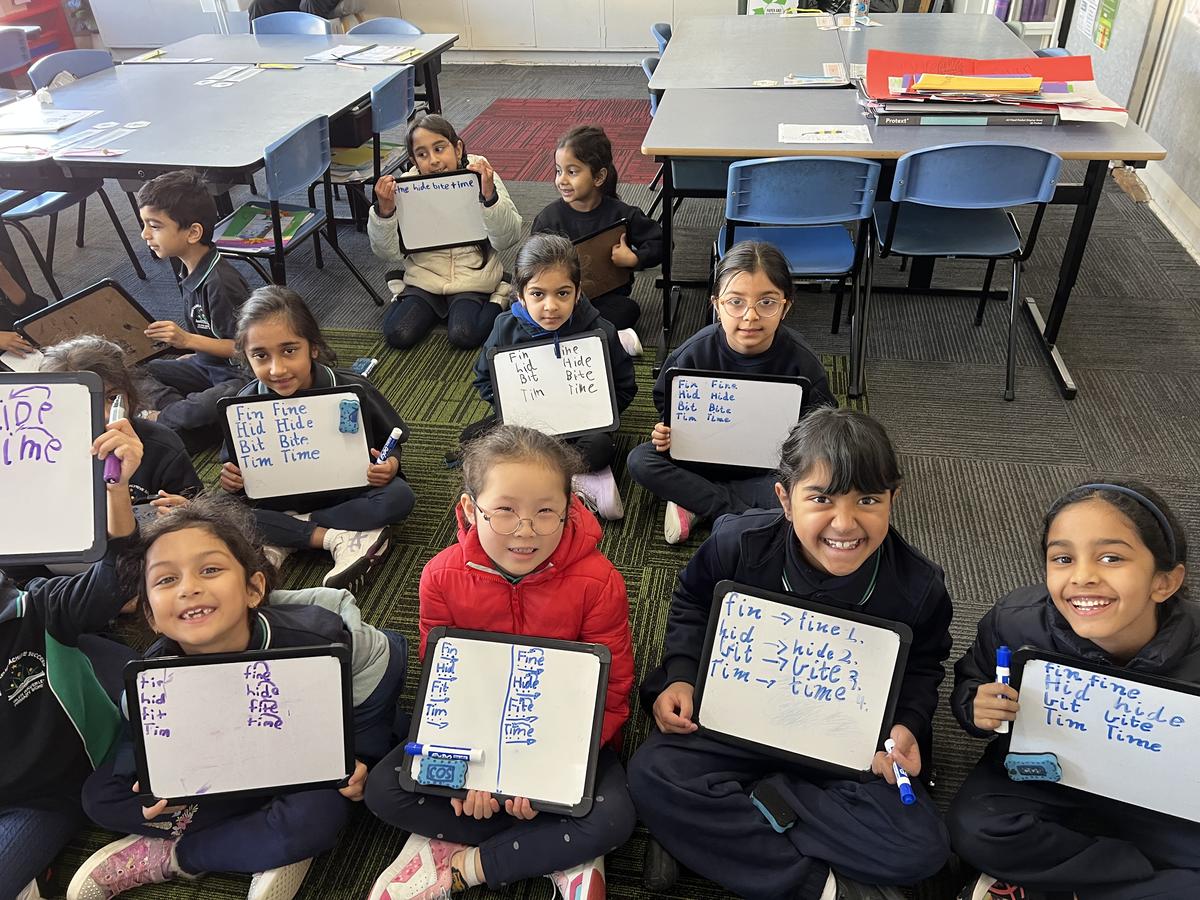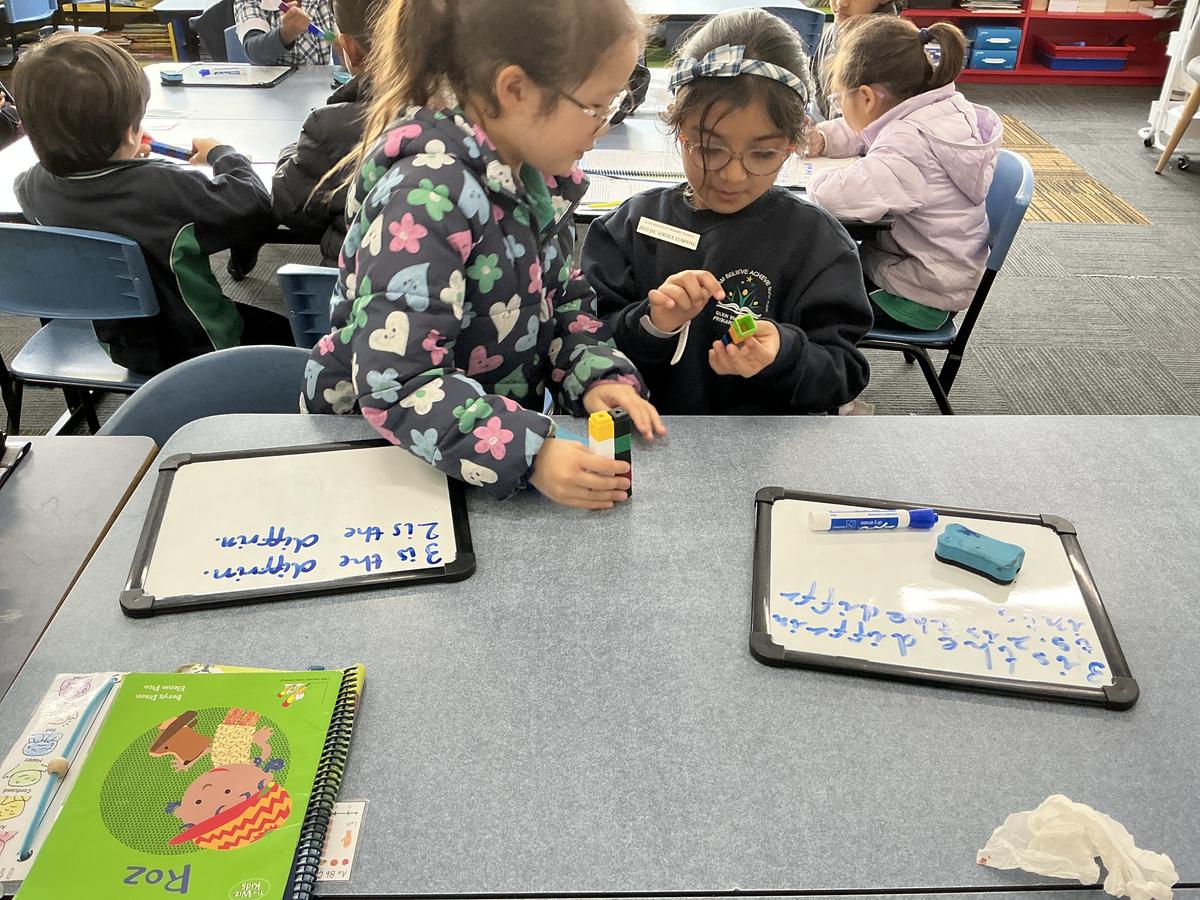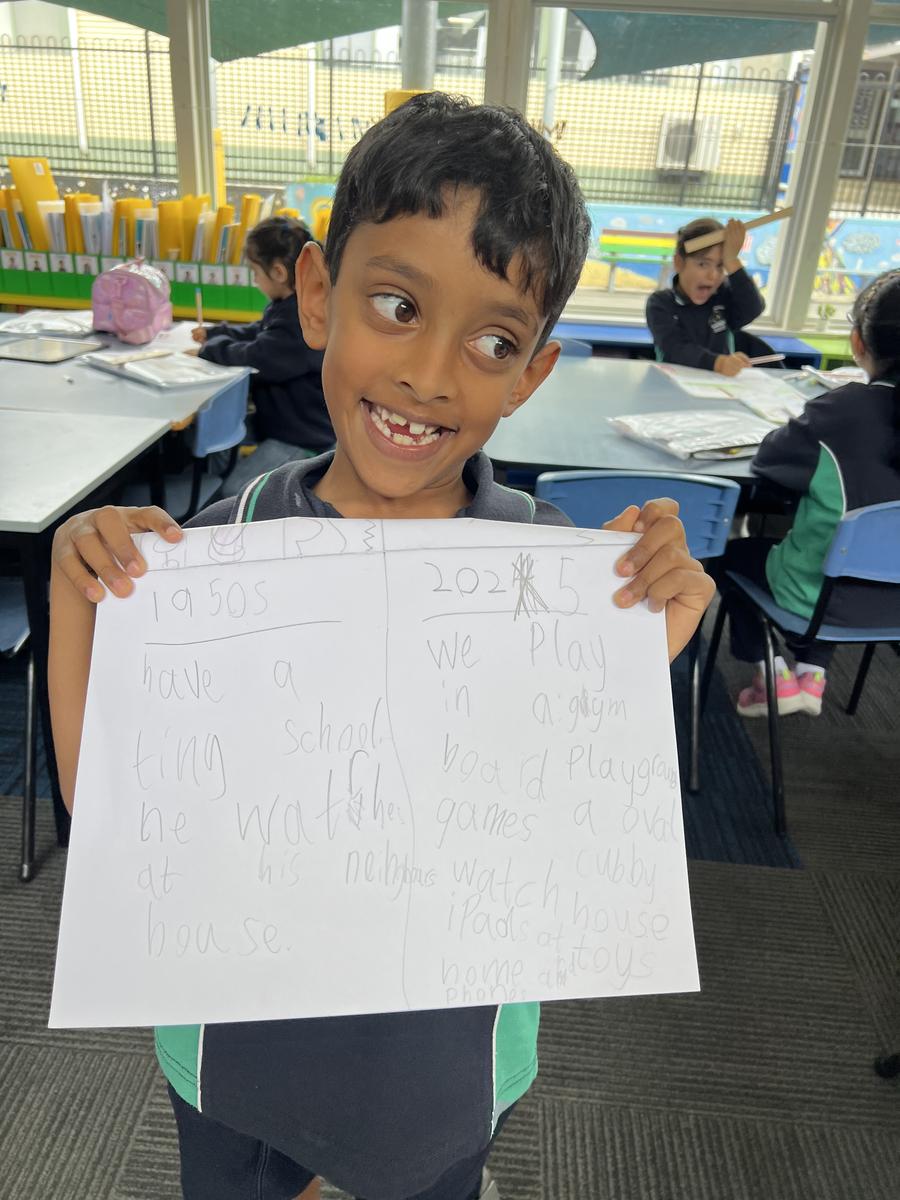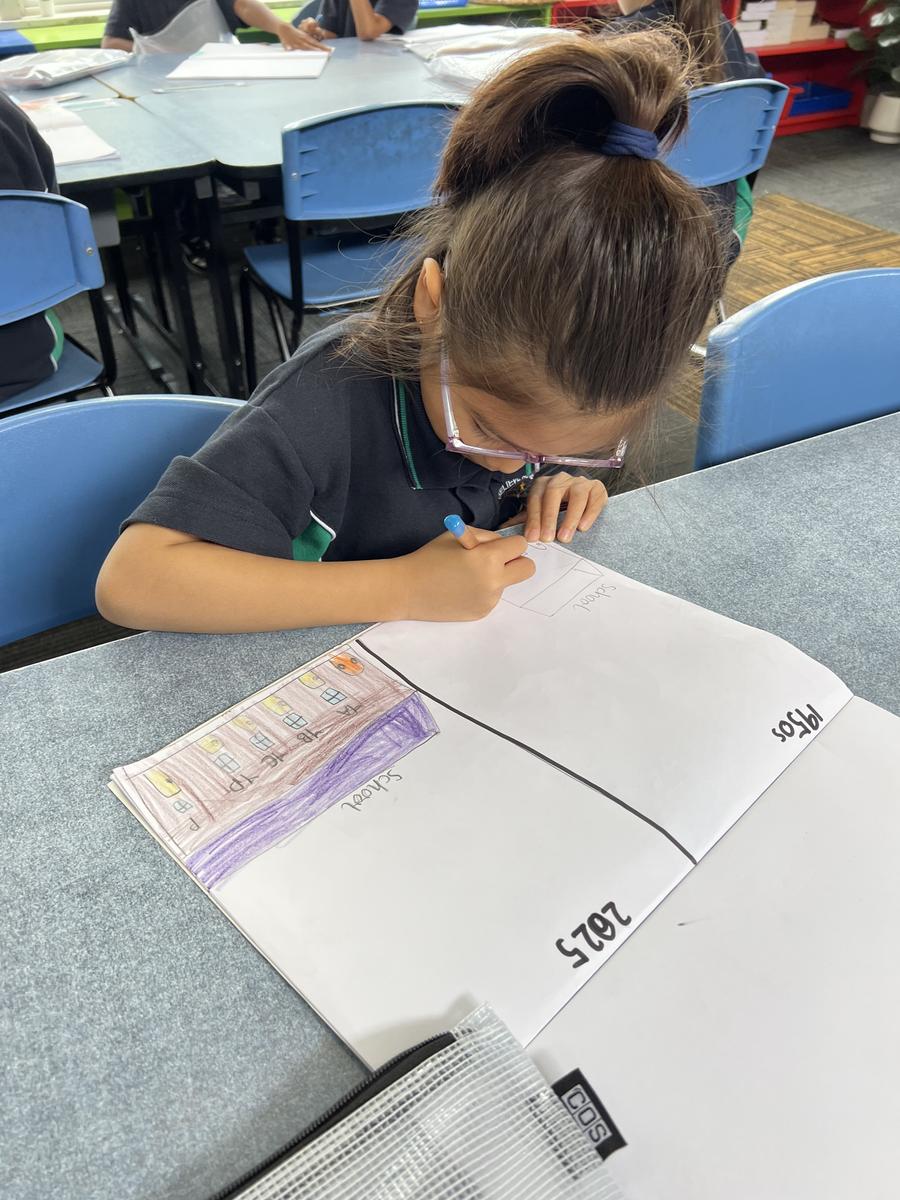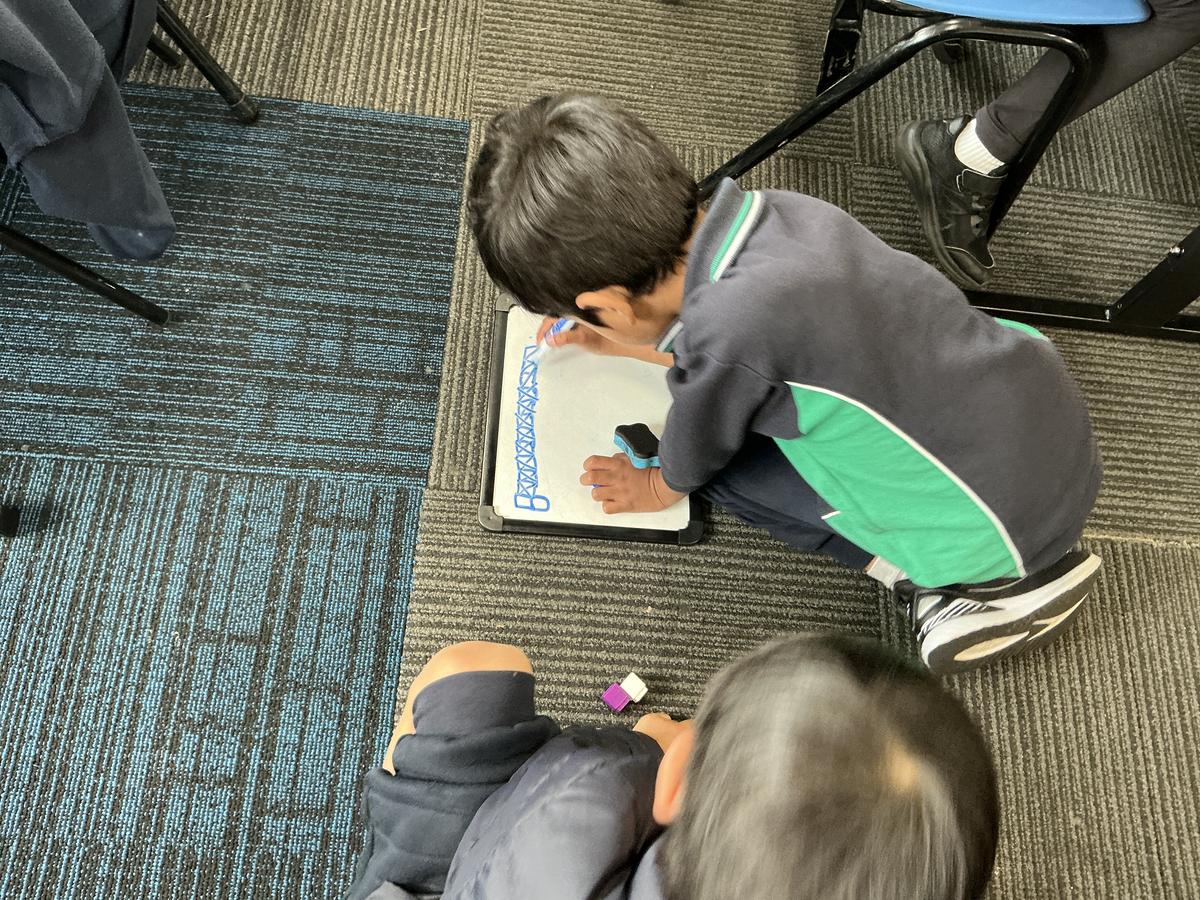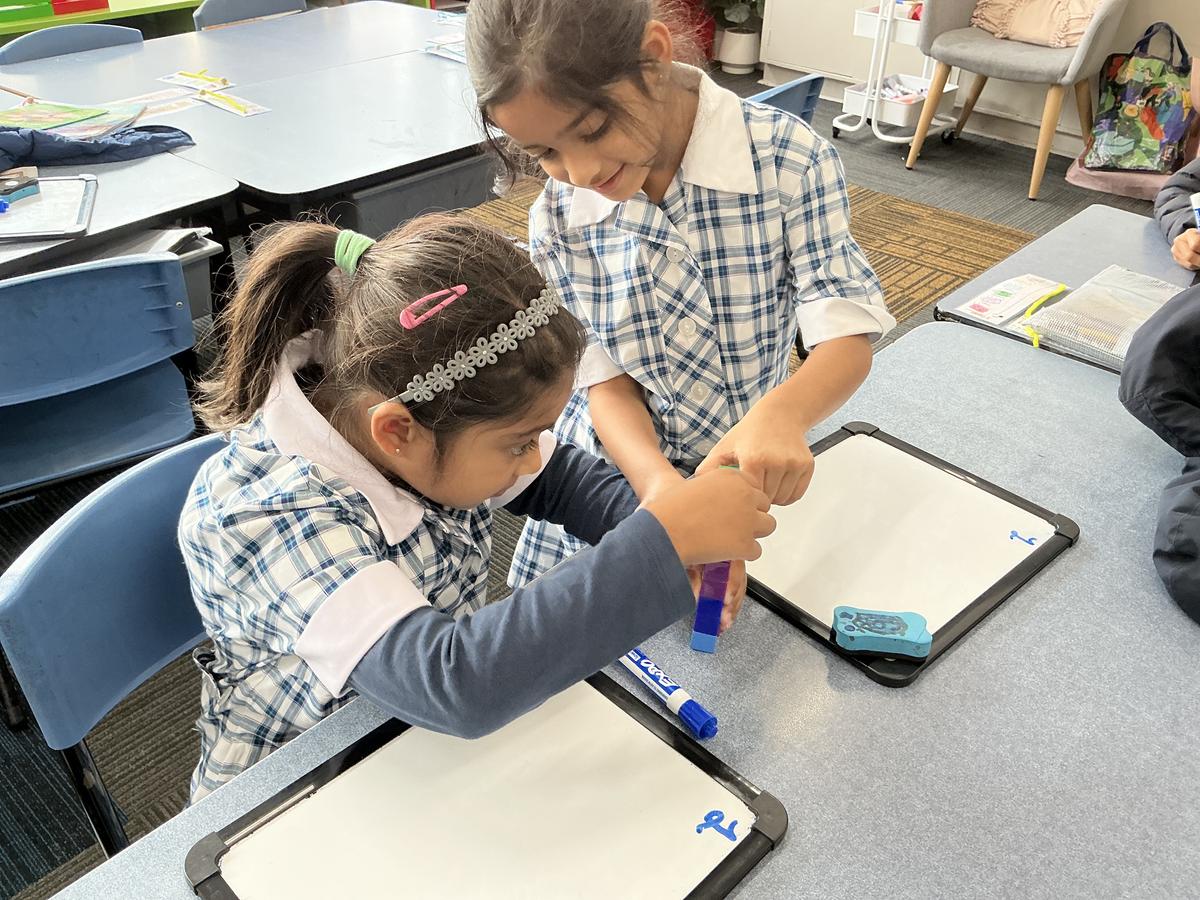Term Three
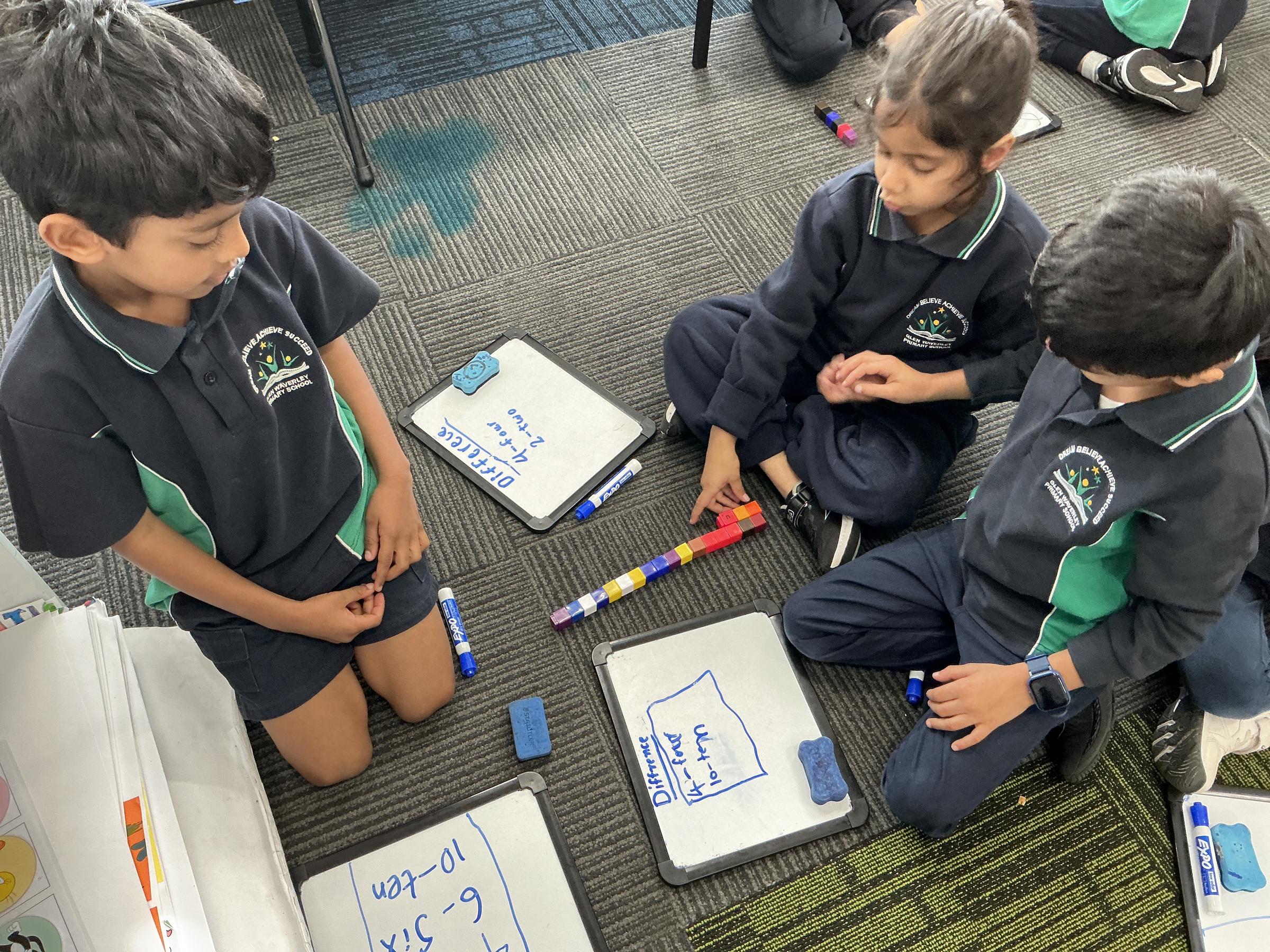
English: Initial Lit
Reading, Viewing, Listening and Speaking
In Term 3, Year One students will further deep dive into the second semester of Initial Lit. Each week they will engage with five focus lessons. These focus lessons will introduce them to new phonemes such as long vowel sounds and split digraphs, as well as base words and suffixes. Students will also explore different text types in our two Storybook lessons each week. These storybooks will expose students to imaginative, persuasive and informative text types. Each lesson will unpack key Reading Comprehension skills such as questioning, predicting, inquiring into new vocabulary and summarising the text. We are all looking forward to continuing this exciting journey with the students.
Key Vocabulary:
- Long vowel sounds
- Split digraphs
- Base words and suffixes
How can you support your children at home?
- Listen to your child read their reader each day and invite them to record this in their Reading Diary.
- Encourage your child to read their reader, or another text, more than once using the first reading to decode unknown words and explore the meaning, and the second reading opportunity to understand the text and connect it to their life.
- Pause at the front cover or various stages of a book or movie and predict what might happen next with your child.
Writing
In Term 3, students will deepen our previous learning around Super Sentences. Super Sentences are sentences that include four aspects:
- A capital letter at the beginning of the sentence.
- A full stop at the end of the sentence.
- It is about something or someone (a noun).
- It makes sense.
In the first half of the term, students will explore letters, invitations, cards and emails. This learning will also integrate our Production to create authentic learning contexts. Keep an eye out for an invitation from your child to our school production, and an email to share their learning journey before and during our Production. In the latter half of the term, students will analyse and create poems, including acrostic poems, colour poems, rhyme and songs. They will continue to practise implementing adjectives to create vivid descriptions about nouns.
Key Vocabulary:
- Super Sentences
- Letters
- Invitations
- Cards
- Emails
- Poems
- Rhyme
How can you support your children at home?
- Select an object, character or setting and brainstorm as many different adjectives you could use to describe the noun. Encourage your child to think about the five senses (Sight, Touch, Smell, Taste, Hear) and how they relate to the chosen noun to help guide their thinking.
- Play rhyming games together, for example, have a person select a word and take it in turns to find a rhyming word. Count how many rhyming words you can get!
- Encourage students to write cards and letters to family and friends.
Mathematics
In Term 3, Year One students will investigate a variety of mathematical concepts through hands-on experiences, discussions, and practical problem-solving activities. Our focus areas will include Measurement (Length), Patterns, and Sharing & Grouping, supporting students to build strong foundational skills in number and measurement.
Students will explore the concept of length by learning to measure, compare, and order objects using informal units (such as blocks, paper clips, or hands). They will investigate the attributes of objects and understand how to use non-standard units fairly and accurately. In Patterns, students will learn how patterns repeat and can be described and created using different elements (colours, shapes, sounds, or actions). They will investigate repeating patterns and develop number patterns by skip counting by 2s, 5s, and 10s. These skills will help them notice patterns in their environment and lay the groundwork for understanding multiplication later on. In Sharing and Grouping, students will develop their understanding of equal groups through engaging sharing and grouping activities. They will learn to share objects fairly between groups and use mathematical language to describe how collections are organised. As they work with physical objects, students will practise solving simple problems that involve dividing items into equal parts and forming groups. They will also begin to explore arrays, arranging objects in rows and columns to help them see how items can be grouped in an organised way. These practical learning experiences will help lay the foundation for their early understanding of multiplication and division.
Key Vocabulary:
- Length
- Measure
- Compare
- Longer
- Shorter
- Same
- Informal unit
- Pattern
- Repeat
- Skip count
- Growing/Shrinking patterns
- Divide
- Equal groups
- Array
How can you support your child’s Mathematics learning at home?
- ️ Use everyday objects (books, shoes, toys) to measure and compare lengths.
- Find patterns in nature, clothing, or home décor. Create your own patterns with LEGO, beads, or actions (e.g., clap, stomp, clap).
- Skip count while climbing stairs, packing toys, or counting coins. Start by counting in 2s, 5s, and 10s.
- Share snacks or toys equally and discuss how many each person gets. Group toys into equal piles and practise counting them.
Inquiry
Question: How do we express ourselves?
Global Goal: 17. Partnership for the Goals
In Term 3, students will investigate the following guiding question: “How do we express ourselves?” They will explore a variety of cultures and begin to understand how people use drama, movement, storytelling, and the arts to express ideas and emotions. Students will take part in engaging cultural workshops, collecting ‘passport stamps’ as they journey through stories, performances, and traditional artistic forms from around the world. A key focus will be on collaboration, compromise, and student voice, as learners work together to bring a traditional folktale to life. Each Year One class will select a folktale to explore and use the elements of drama to create their own costumes, sets, and scenes. Students will rehearse and refine their performances before filming or sharing their work with a wider audience.
Key Vocabulary:
How can you support your child’s Inquiry learning at home?
- Expression
- Culture
- Drama
- Communication
- Collaboration
- Compromise
How can you support your child’s Inquiry learning at home?
- Talk with your child about any drama, dance, or performance traditions that are part of your culture. This might include things like theatre, festivals, ceremonies, or storytelling through movement or music. If you have photos or videos, look at them together and talk about how people express themselves during those events.
- Encourage your child to learn about a story or folktale from another culture background. Talk about the characters, setting, and the message or moral of the story. You might even act it out together at home!
- Discuss how your child feels in different situations and how they might show those emotions through their face, body, or voice. You can play a game where you each take turns acting out an emotion (like “happy,” “angry,” or “excited”) and guess what it is.
Wellbeing
In Term 3, students will continue to explore the key principles of The Resilience Project: Gratitude, Empathy, Mindfulness, and Emotional Literacy. Through engaging lessons, they will learn to explore the importance of noticing and expressing emotions as we experience them. Furthermore, students will discover what happens if emotions build up. They will explore mindfulness and wellbeing activities on how to be mindful before screen time. Students will also focus on the importance of empathy in encouraging their peers. Lastly, they will explore gratitude through the lens of distinguishing between ‘needs’ and ‘wants’ in their daily lives.
Students will also learn about digital safety through the Cyber Safety Program, focusing on becoming responsible and respectful digital citizens. They will explore digital dilemmas and ways to respond with responsibility and integrity. Furthermore, students will discover strategies to assist in managing and regulating heavy emotions when playing online. Additionally, they will learn to identify potential online problems and discover ways to overcome these situations appropriately. Lastly, they use the S.T.A.R.T strategy to tune into our emotions while online and keep a healthy digital balance.
Key Vocabulary:
- Gratitude
- Empathy
- Mindfulness
- Emotional Literacy
- Needs and Wants
- S.T.A.R.T strategy
- Consumption
- Creation
- Encouraging
How can you support your child’s Wellbeing learning at home?
- Ask your child about their emotions and help them notice and express them in healthy ways.
- Learn how to use encouraging words or strategies to encourage your friends, families or grandparents. Also learn how to use kind and helpful actions in their daily lives.
- Try activities where you are moving your body, being mindful of what you are doing like mindfulness colouring and any activity where you are working with or talking to a friend, family member or a group of people.
- Talk about strategies on how to manage and regulate heavy emotions when playing online. Also identify potential online problems and discover ways to overcome these situations appropriately.

